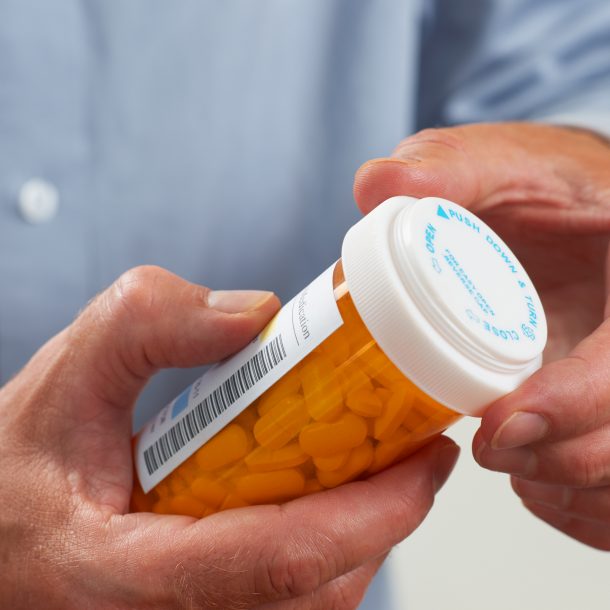
Categories
- Alcohol (9)
- Detox (9)
- Drugs (31)
- Life After Rehab (24)
- Media Coverage (1)
- Mental Health (67)
- Miscellaneous (13)
- News (2)
- Sobriety (34)
- Treatment (68)
Recent Posts
-

Opioids are powerful substances that have a high potential for abuse. They also have a significant impact on the brain and body. If you or someone you love uses opioids or are battling opioid addiction, you may wonder, “how do opioids affect the body?”
Opioids are drugs that offer significant pain relief. They are often referred to as narcotics. Heroin, an illicit drug, is one type of opioid. Another type is legal prescription painkillers, such as codeine, oxycodone, and morphine. Prescription painkillers are often prescribed to people recovering from surgery or managing other painful health issues, such as cancer or extensive dental procedures.
The most commonly prescribed opioids include:
The only illicit opioid is heroin, but street drug dealers often sell fentanyl for recreational purposes. Both substances are incredibly dangerous. Although fentanyl is a prescribed medication, a minuscule amount can lead to a fatal overdose, which is why it should only be taken under the care of a medical professional.
Side effects of opioids can include drowsiness, constipation, nausea, and mental fog. Slowed breathing is another concern among people who use opioids, leading to overdose deaths.
Signs of an opioid overdose include:
Several other risks are associated with using prescription opioids, including how opioids affect the body, in addition to a risk of addiction and drug dependence.
If you wonder, “how do opioids affect the body?” you should know that they affect the whole body, including the body and the brain.
Opioid substances block pain signals between the body and brain by attaching themselves to opioid receptors in the brain, spinal cord, and other parts of the body. Opioid receptors are proteins that come in three forms in the human body:
The brain is greatly affected by opioid use, first acting as a depressant while slowing down the central nervous system’s activity. This can lead to:
As a person continues to use opioids, the brain changes. If a person uses opioids for a long time, it can cause:
Opioids also affect other parts of the body. Widening of blood vessels can occur. Blood pressure can become dangerously low and can deprive the heart and brain of vital levels of oxygen to function properly. The lining of the heart can be contaminated, leading to cardiovascular infection.
A person’s heart rate can become dangerously slow or fast. The digestive system can experience constipation or an increase in ulcers in addition to bowel perforations and inflammation that can be fatal. The lungs can be impacted, leading to slowed breathing or respiratory arrest, which is a fatal condition. Bone thinning and loss is another risk of opioid misuse, causing people to have a higher risk of broken bones and fractures. And the nervous system can ironically be impacted by causing users to become more sensitive to pain.
Opioids are among the most abused substances in the United States, with nearly three million citizens affected by opioid use disorder, according to the National Institutes of Health (NIH). Opioid addiction is a chronic brain disease that leads an individual to seek out opioids compulsively, despite the fact that they cause harm. The risk of opioid addiction is much higher if the prescription medications are misused, which can involve taking too much medicine, taking it in a different way than directed by a medical professional, taking someone else’s medicine, or taking it with the intention of getting high.
Opioids affect the brain by flooding the brain with dopamine, which is a chemical messenger in the body that helps regulate emotion, pleasure, and movement. The brain requires a certain amount of dopamine to function properly; however, when the brain is flooded with an excessive amount of dopamine over time, it adjusts to the new amount. This can cause the brain to be tricked into thinking it needs a higher amount of dopamine to function properly, leading to opioid dependence. Sadly, prolonged exposure to opioids can alter the way the brain functions.
The risk of overdose-related death is high with opioids, with nearly 75% of drug overdose deaths in 2020 involving opioids. If someone you know misuses opioids, seek out opioid addiction treatment right away for their safety and wellbeing.
Opiates affect the brain and body in a way that can cause irreversible damage to your body and your mental health. Although opioid addiction is difficult to recover from on your own, it is not impossible. With help, you can take back your life.
At our Los Angeles rehab, we use medication-assisted treatment to help those in need overcome their opioid addiction issues. To find withdrawal management in Southern California, SoberMind Recovery Center is here to help.
If you are looking for a Los Angeles addiction treatment center that can offer the best results, consider getting help from our excellent team of professionals who are here to support you and your loved ones throughout the difficulties of overcoming opioid addiction. Call us today for more information.

